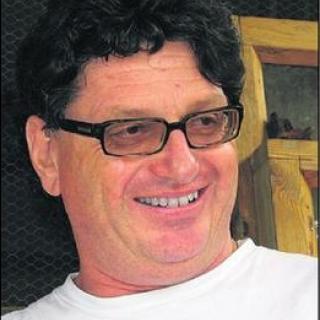Emmerich Pregetter was born in Mautern in Steiermark, central Austria, on 14 October 1954, and grew up in the city of Leoben. After finishing school, he spent three years in the Austrian army, taking part in the UN peacekeeping mission to Cyprus in 1973. Emmerich then worked for seven years as an international truck driver before holding various positions, ranging from mechanic to foreman, in the metal production industry. In 1993 he gained a master’s degree in mechanical engineering from Vienna’s Humboldt adult education institute. From that point onwards he was committed to working in the humanitarian sector, almost entirely within the International Red Cross and Red Crescent Movement.
Emmerich’s first mission, in September 1994, was with the International Federation of Red Cross and Red Crescent Societies (IFRC) in Ngara, northwest Tanzania, working as a technician in an Austrian Red Cross water team. Six months later he took over as transport manager and acting logistics coordinator in Ngara. Logistics management came naturally to him: he was an excellent project manager, exceptional team player and leader, great communicator, and supremely adaptable. Plus he knew vehicles inside out. Other IFRC assignments followed: regional fleet manager in Nairobi, Kenya (1996–1997); transport officer, headquarters, Geneva (1998–1999); head of the logistics centre and country representative in Abu Dhabi, United Arab Emirates (2000–2002). Emmerich also drafted the IFRC’s Standard Operating Procedures for Fleet Management and helped initiate the IFRC Procurement and Warehouse Manual.
It was soon the turn of the ICRC to benefit from his logistics management skills. First up, in 2002, were two short missions to Ethiopia and Eritrea where he developed management manuals for the ambulance services of the Ethiopian Red Cross Society and the Red Cross Society of Eritrea. Thanks to his organizational and project management skills, ability to build strong working relationships, upbeat personality and can-do attitude, Emmerich delivered as promised. Next stop was Israel and the occupied territories where he took on the role of vehicle fleet manager, based in Jerusalem. During his time there, he also produced a management manual for the Palestine Red Crescent Society’s ambulance service. In February 2004 Emmerich took over as vehicle fleet manager at the ICRC’s regional logistics centre in Nairobi, Kenya. A year later he left the ICRC and carried out short missions for the UK charity Merlin and Save the Children (UK), in Liberia and Ethiopia respectively.
In July 2008, the father-of-three rejoined the ICRC as a logistics specialist based at the Zalingay subdelegation, West Darfur, Sudan. On 11 August he was travelling in a convoy from Zalingay to Djebel Mara, delivering construction materials for a rural health clinic, when a large swarm of bees attacked the vehicles. Emmerich and several others were stung severely. They were taken immediately to Nertiti hospital where Emmerich died the following day. He was 53.
